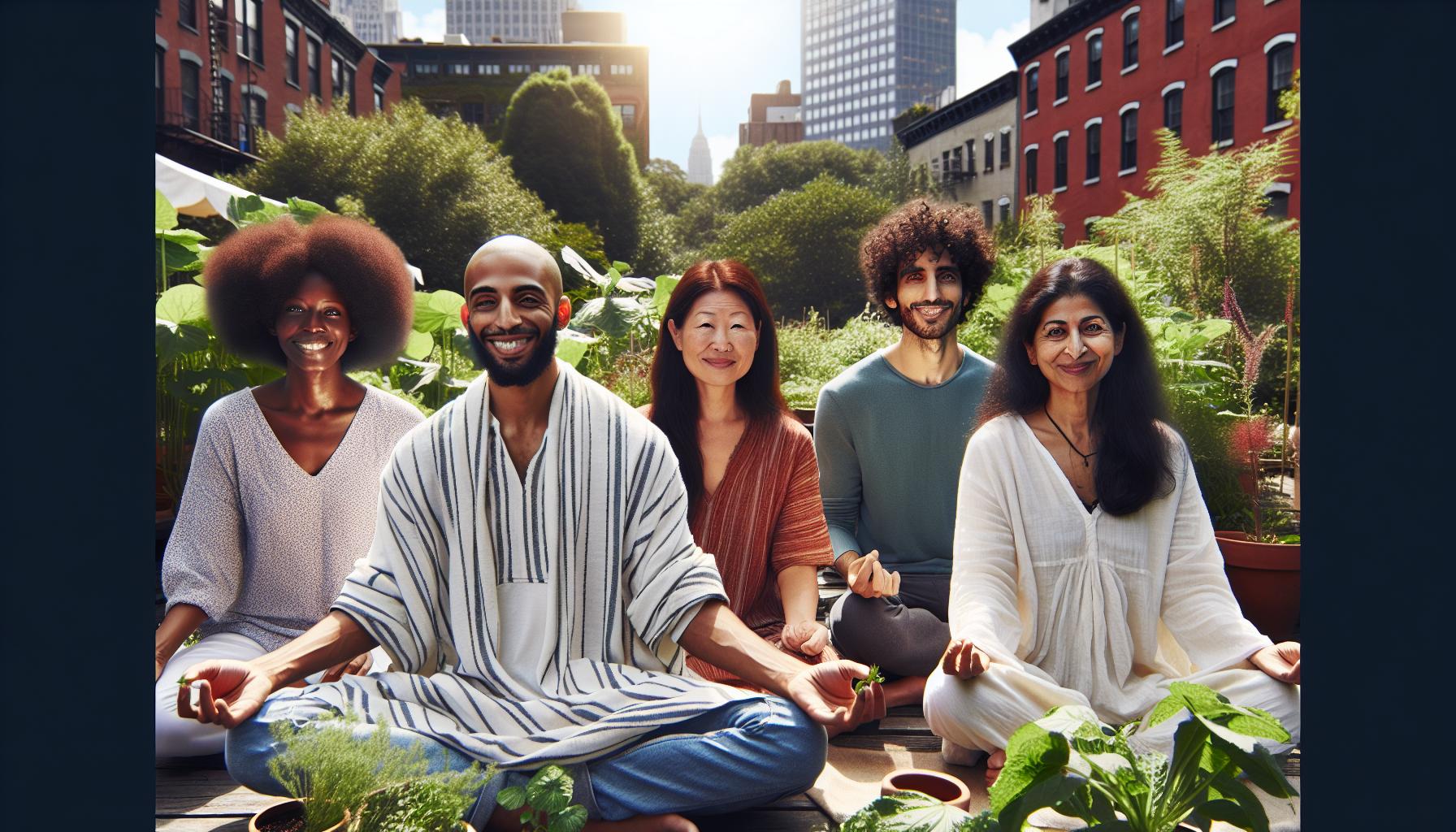In a world where stress levels are skyrocketing and wellness trends are taking over, the allure of a Bachelor’s in Alternative Medicine is hard to resist. Imagine diving into a field that not only embraces the wisdom of ancient healing practices but also equips students with the tools to tackle modern health challenges. It’s like becoming a wellness wizard—minus the pointy hat, of course.
As more people seek holistic approaches to health, the demand for skilled practitioners is booming. This degree offers a unique blend of science and spirituality, allowing graduates to explore everything from herbal remedies to energy healing. So why not trade the traditional lab coat for something a little more zen? With a Bachelor’s in Alternative Medicine, the path to a fulfilling career in health and wellness is just a few mindful steps away.
Bachelors in Alternative Medicine
A Bachelor’s in Alternative Medicine equips students with knowledge of diverse healing paradigms. Various ancient traditions, such as Ayurveda and Traditional Chinese Medicine, form the foundation of this degree. Students study modalities like herbal medicine, acupuncture, and nutrition, preparing them for holistic health careers.
Curriculums may include classes in anatomy, physiology, and pharmacology, allowing a comprehensive understanding of human health. Knowledge of ethical practices and patient care complements technical expertise. Upon graduation, individuals often pursue certifications in specialized fields, enhancing employability.
Graduates frequently find roles in wellness centers, holistic clinics, and private practices. Potential career paths include becoming health coaches, naturopathic practitioners, or massage therapists. Career landscapes vary, reflecting personal interests and community needs.
Some professionals choose to integrate alternative medicine with conventional healthcare, providing a more rounded approach to patient wellness. This integration satisfies the appetite for comprehensive care in many communities.
Employment projections indicate growth within alternative medicine sectors as more individuals seek holistic treatments. According to the Bureau of Labor Statistics, wellness-oriented careers are on the rise, reflecting the increasing public interest in alternative and complementary health options.
Financial aspects also attract students to this field. Many alternative medicine practitioners enjoy flexible schedules and the potential for lucrative income as more clients turn to holistic options for health management. This degree fosters a fulfilling professional journey driven by the passion for helping others achieve better health through alternative practices.
Curriculum Structure

The curriculum for a Bachelor’s in Alternative Medicine combines foundational knowledge with practical skills. Students engage in a diverse array of courses designed to develop a comprehensive understanding of holistic health.
Core Courses
Core courses establish a strong basis in alternative medicine practices. Students explore subjects such as herbal medicine, acupuncture, and nutrition. Anatomy and physiology courses provide insights into the human body and its functions. Pharmacology classes cover essential information on medicinal substances. Learning about ethics and legal issues in healthcare is crucial for a well-rounded education. Each course focuses on integrating ancient healing traditions with contemporary practices. This multidisciplinary approach ensures preparedness for various professional settings.
Elective Courses
Elective courses allow students to tailor their education according to personal interests. Options often include topics like aromatherapy, massage therapy, and emotional healing techniques. Courses in yoga and mindfulness practices enhance an understanding of mental well-being. Integrative health courses delve into the connections between mind, body, and spirit. Students might also study dietary therapies and their impact on overall health. These electives foster specialized knowledge, preparing graduates for unique career paths within alternative medicine. Through a diverse offering, students can explore their passions while gaining valuable skills.
Career Opportunities

A Bachelor’s in Alternative Medicine opens diverse career paths in various fields of health and wellness. Graduates can expect opportunities to utilize their specialized knowledge and skills to promote holistic health.
Job Roles
Health coaches guide individuals in lifestyle changes, emphasizing nutrition and wellness. Naturopathic practitioners assess and treat health issues using natural remedies. Meanwhile, massage therapists provide relaxation and relief through therapeutic techniques. Energy healers focus on balancing energy fields to promote healing. Practitioners often collaborate with other healthcare professionals to create comprehensive wellness plans for patients.
Industries of Employment
Holistic clinics employ graduates in roles that focus on patient-centered care. Wellness centers offer positions for specialists in nutrition and herbal remedies. Fitness facilities also seek professionals with alternative medicine training to enhance community wellness programs. Additionally, private practices allow graduates to cater to clients on a personal level, integrating alternative approaches into conventional healthcare settings. Many find opportunities in educational institutions, promoting alternative practices through workshops and seminars.
Benefits of Pursuing a Degree

A Bachelor’s in Alternative Medicine offers multiple benefits that enhance both personal and professional aspects of life.
Personal Growth
Pursuing this degree fosters significant personal development. Students engage in self-reflection while exploring various healing methods. They cultivate a deeper understanding of health, wellness, and personal responsibility. Enhanced self-awareness emerges through the study of holistic health practices. Graduates often find improved emotional resilience, better stress management, and increased empathy toward others. Additionally, students learn to prioritize wellness not only for themselves but also for their communities. Skills acquired during the program promote lifelong learning and adaptability in diverse environments.
Professional Advancement
Graduates enjoy numerous professional opportunities in the ever-evolving health landscape. Market demand for alternative medicine practitioners continues to grow, creating diverse career paths. Positions such as health coaches and naturopathic practitioners offer fulfilling roles centered on patient care. Additionally, graduates benefit from networking opportunities within holistic health circles. Specialized knowledge in areas like herbal remedies enhances employability and attracts a range of clients. Furthermore, the ability to integrate alternative practices with conventional medicine allows for unique collaborations in healthcare settings. With flexible schedules and lucrative earning potential, graduates truly thrive in this dynamic field.
Challenges and Considerations
Pursuing a Bachelor’s in Alternative Medicine presents unique challenges alongside its many benefits. Accreditation and public perception play vital roles in shaping graduates’ professional journeys.
Accreditation Issues
Accreditation remains a critical concern for students in alternative medicine programs. The lack of standardized accreditation bodies for many institutions can lead to varying educational quality. Graduates from non-accredited programs may face barriers in employment settings that prioritize accredited degrees. Employer perception often hinges on an institution’s accreditation status, impacting the job search process. Students should thoroughly research potential schools, verifying their accreditation status and curriculum legitimacy. Ensuring a degree from an accredited institution enhances employment prospects and provides a solid educational foundation.
Public Perception
Public perception of alternative medicine significantly influences the career landscape for graduates. While acceptance of holistic healing approaches increases, skepticism remains prevalent among some healthcare professionals and patients. Many individuals see alternative medicine as complementary rather than a substitute for conventional treatments. Graduates often encounter clients with varying levels of understanding and acceptance of alternative practices. Building trust is essential for practitioners in this field, as skepticism can hinder the therapeutic relationship. Effective communication about the benefits and risks of alternative treatments aids in this endeavor, fostering a deeper connection with clients.

